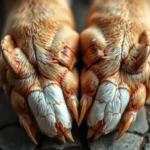
Introduction
The health of our beloved canine companions is paramount, not only for their happiness but also for their longevity. Understanding the intricacies of dog health care can lead to better quality of life and extended lifespans. Among various breeds, the Havanese has gained popularity due to their charming demeanor and affectionate nature. These small, sturdy dogs are known for their playful personalities and striking appearance, making them delightful companions for families and individuals alike.
When considering bringing a Havanese into your home, one of the most pressing questions often arises: Havanese lifespan—how long do they live? This article delves into the lifespan of Havanese dogs, examining the factors influencing their health and longevity, and offering insights into proper care practices to ensure they thrive.
Understanding Havanese Dogs
Breed Overview
The Havanese is a small breed with a distinct appearance. They typically weigh between 7 to 13 pounds and stand about 8.5 to 11.5 inches tall at the shoulder. One of their most notable features is their long, flowing double coat, which can come in a variety of colors. Their expressive eyes and lively gait add to their charm, making them a favorite among dog lovers.
In terms of temperament, Havanese dogs are known for their friendly and outgoing nature. They are highly social, often forming strong bonds with their families and other pets. Havanese are intelligent and eager to please, making them relatively easy to train. Their playful spirit allows them to thrive in various environments, whether that be a busy household or a quieter setting.
Historically, Havanese dogs served as companion animals, often used in roles such as therapy dogs due to their gentle disposition. Their adaptability and affectionate nature make them excellent companions for individuals of all ages.
Common Health Concerns
Like many breeds, Havanese dogs can be prone to certain health issues. Some of the most common health concerns include:
- Hip Dysplasia: A genetic condition that affects the hip joint, leading to arthritis and pain.
- Patellar Luxation: A common knee problem where the kneecap dislocates, often requiring surgical intervention.
- Eye Conditions: Havanese are susceptible to various eye disorders, including cataracts and progressive retinal atrophy.
Understanding these potential health issues underscores the importance of regular veterinary check-ups. Early detection and intervention can significantly enhance the quality of life for Havanese dogs and increase their chances of a longer lifespan.
Havanese Lifespan
Average Lifespan
The Havanese lifespan typically ranges from 12 to 15 years, which is relatively long compared to many other small dog breeds. This longevity can be attributed to their size, genetic health, and the level of care they receive throughout their lives.
When compared to other small breeds, Havanese dogs often live longer than breeds such as the Dachshund or the Chihuahua, whose average lifespans hover around 12 to 14 years. However, factors outside of breed tendencies can greatly influence their lifespan.
Factors Influencing Lifespan
Several factors play a crucial role in determining how long Havanese dogs may live:
- Genetics: Inherited traits can predispose Havanese to certain health issues, which can affect their overall lifespan. Responsible breeding practices can help minimize these risks.
- Diet and Nutrition: A balanced diet tailored to the specific needs of Havanese dogs is essential for maintaining their health. Obesity, which can lead to various health problems, is a significant concern and can shorten their lifespan.
- Exercise: Regular physical activity is crucial for Havanese dogs. They require daily exercise to stay healthy and mentally stimulated. Lack of exercise can lead to obesity and related health issues, negatively impacting their longevity.
Health Care Practices for Havanese
Regular Veterinary Care
Routine veterinary check-ups are vital for maintaining the health of your Havanese. Regular visits enable early detection of health issues, ensuring timely treatment. Vaccinations are equally important; Havanese dogs should receive their core vaccinations, including:
- Canine Parvovirus
- Canine Distemper
- Rabies
These vaccinations play a crucial role in protecting your dog from serious diseases.
Nutrition and Diet
Feeding your Havanese a well-balanced diet is essential for their overall health. High-quality dog food that meets their nutritional needs is crucial. Here are some guidelines to consider:
- Look for dog food that lists meat as the first ingredient.
- Ensure the food contains essential nutrients, including proteins, fats, vitamins, and minerals.
- Monitor portions to prevent obesity, which can lead to various health issues.
Common dietary problems include food allergies and sensitivities, which can manifest in skin issues or gastrointestinal problems. Consulting with a veterinarian can help you identify the best dietary plan for your Havanese.
Exercise Requirements
Havanese dogs are energetic and require regular exercise to stay healthy. Here are some recommendations for keeping your Havanese active:
- Daily Walks: Aim for at least 30 minutes of walking each day.
- Playtime: Engage in interactive play, such as fetch or tug-of-war, to stimulate both their minds and bodies.
- Mental Stimulation: Incorporate puzzle toys or training sessions to keep their brains active and prevent boredom.
Exercise not only helps to maintain a healthy weight but also promotes emotional well-being and reduces behavioral problems often associated with inactivity.
Grooming Needs
The grooming requirements of Havanese dogs are significant due to their long, silky coats. Regular grooming is essential to prevent matting and maintain a healthy coat. Here are some grooming tips:
- Brushing: Brush your Havanese’s coat at least two to three times a week to prevent tangles.
- Bathing: Bathe your dog every four to six weeks, or as needed, to keep their coat clean and healthy.
- Dental Care: Regular dental care is crucial; brush their teeth at least two to three times a week to prevent dental disease.
- Ear Cleaning: Regularly check and clean their ears to prevent infections, as Havanese dogs can be prone to ear issues.
Signs of Health Issues
Recognizing Symptoms
Pet owners should be vigilant for signs that may indicate health problems in their Havanese. Common symptoms include:
- Changes in appetite (increased or decreased)
- Lethargy or decreased activity levels
- Unusual behavior or signs of distress
- Excessive scratching or licking, which may indicate allergies
Monitoring your dog’s behavior and physical condition can help you catch potential health issues early.
When to Consult a Veterinarian
It’s vital to know when to seek veterinary advice. If you notice any of the following symptoms, consult your veterinarian promptly:
- Persistent vomiting or diarrhea
- Sudden weight loss or gain
- Difficulty breathing or coughing
- Any unusual lumps or bumps
Prompt attention can lead to better outcomes and significantly affect your Havanese’s quality of life.
Enhancing Havanese Lifespan and Quality of Life
Environment and Living Conditions
Creating a safe and comfortable living environment is critical for your Havanese. Here are some considerations:
- Space: While Havanese dogs are small, they still need enough space to move around comfortably. Ensure your home is dog-friendly, free from hazards.
- Temperature Control: Havanese dogs can be sensitive to extreme temperatures. Provide a climate-controlled environment to keep them comfortable.
Mental Health and Socialization
Socialization plays a key role in a Havanese’s well-being. Expose your dog to various environments, people, and other pets to promote confidence and reduce anxiety. Activities that foster mental health include:
- Group classes or playdates with other dogs
- Regular outings to parks or pet-friendly locations
- Interactive games that challenge their minds
Senior Havanese Care
As Havanese dogs age, their care requirements may change. Here are some adjustments to consider:
- Diet: Senior Havanese may require a diet tailored to their age and activity level. Consult with your veterinarian to adjust their nutritional needs.
- Exercise: While regular exercise remains important, it may need to be moderated based on their energy levels and joint health.
- Health Monitoring: Increased vigilance is necessary for older dogs. Schedule more frequent veterinary visits to monitor their health closely.
Conclusion
Understanding the Havanese lifespan and the various factors influencing their health is essential for every pet owner. By prioritizing routine veterinary care, proper nutrition, regular exercise, and vigilant monitoring of their health, you can help your Havanese lead a long, happy, and fulfilling life. The bond between you and your furry companion is precious, and with proactive care, you can ensure that your Havanese enjoys many joyful years by your side.









